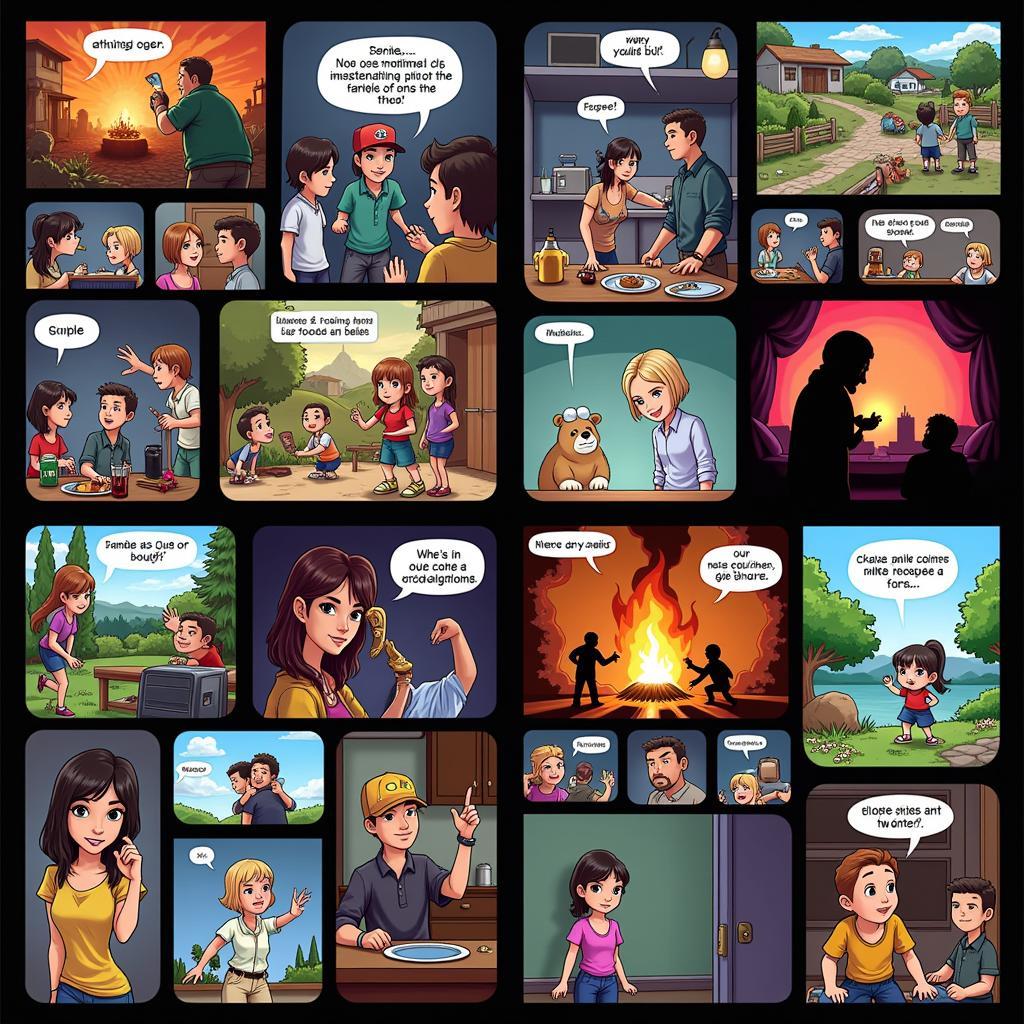We all have those games etched in our memory, the ones that transported us to different worlds and left a lasting impact. But sometimes, those nostalgic trips down memory lane come with a side of disbelief: “Wait, that game was rated E for Everyone?”
From seemingly innocent adventures that hid surprisingly mature themes to titles that flew under the radar of stricter ratings, some games just leave us scratching our heads and wondering, “How did that slip past the censors?”
The ESRB and Its International Counterparts: Guardians of the (Digital) Galaxy?
Before we dive into the games that made us question everything, let’s take a quick detour to understand the organizations responsible for slapping those age ratings on our beloved titles. In North America, we have the Entertainment Software Rating Board (ESRB), while Europe relies on the Pan European Game Information (PEGI) system. Other regions boast their own versions, but the goal remains the same: to provide consumers with an age-appropriate guide to the gaming world.
These organizations consider a multitude of factors when assigning ratings, from violence and language to suggestive themes and gambling elements. But as any seasoned gamer knows, context is key. What might seem like harmless fun in one game can take on a whole new meaning in another.
 Games with Deceptively Mature Content
Games with Deceptively Mature Content
“But It’s a Kids’ Game!”: When Innocence Is Only Skin Deep
Remember that adorable platformer you played as a kid, the one with the cute characters and colorful world? Turns out, beneath that cheerful facade lurked some surprisingly dark undertones. Take, for instance, the classic “Banjo-Kazooie.” This beloved Nintendo 64 title, with its quirky humor and vibrant visuals, was a staple in many childhoods. Yet, sprinkled throughout the game are moments of surprisingly adult humor, from suggestive dialogue to innuendos that sailed right over our innocent heads back in the day.
And who could forget the iconic “Conker’s Bad Fur Day?” This Nintendo 64 title, with its crude humor, violence, and blatant disregard for traditional platforming tropes, became a cult classic. But its mature themes and over-the-top antics were a far cry from the family-friendly fare typically associated with the console.
These games, and many others like them, serve as a reminder that age ratings aren’t always an exact science. What might seem innocent on the surface can pack a surprisingly mature punch, and it’s often these unexpected twists that make these games so memorable.
Nostalgia is a Powerful Filter: Revisiting Childhood Favorites Through Adult Eyes
It’s one thing to be surprised by the content of a game you played as a kid, but it’s another thing entirely to revisit a childhood favorite as an adult and realize just how much went over your head. Games like “Earthbound,” with its quirky humor and seemingly lighthearted adventure, take on a whole new meaning when experienced through a more mature lens. The game’s subtle commentary on consumerism, loss, and the darker aspects of human nature were easily missed by younger players but add a layer of depth and complexity that’s hard to ignore as an adult.
Then there are games like “Metal Gear Solid,” a title that pushed the boundaries of storytelling and cinematic presentation in video games. While its complex plot and mature themes might have captivated teenage audiences, revisiting the game as an adult reveals a depth and nuance that likely escaped our younger selves.
These experiences highlight how our interpretations of games evolve as we do. What might have been simple entertainment in our youth can transform into thought-provoking and even emotionally resonant experiences as we mature.
 Replaying Classic Games as Adults
Replaying Classic Games as Adults
The Evolution of Age Ratings: Have Things Really Changed?
With the gaming industry constantly evolving, it’s worth asking: have age ratings kept pace? While rating systems have become more comprehensive, taking into account new technologies and evolving societal norms, the debate surrounding age-appropriateness in games rages on. What one generation considers acceptable might be deemed inappropriate by the next, and the lines are constantly being redrawn.
The rise of online gaming has also added a layer of complexity to the equation. With players interacting with each other from all over the world, it’s become increasingly difficult to control exposure to mature content. Games with seemingly innocent premises can quickly devolve into toxic online environments, highlighting the need for continued vigilance from both parents and game developers alike.
Beyond the Rating: The Importance of Context and Parental Guidance
While age ratings provide a useful framework for navigating the vast world of gaming, they’re just one piece of the puzzle. Context, parental involvement, and open communication are crucial for ensuring a safe and enjoyable gaming experience for players of all ages.
Instead of relying solely on ratings, parents and guardians should take an active role in understanding the games their children are playing. Researching games online, watching gameplay videos, and even playing games together can provide valuable insights into the content and context that might not be immediately apparent from a rating alone.
Our Favorite Age-Rating Headscratchers: What Games Surprised You?
The world of gaming is filled with titles that made us question everything we thought we knew about age ratings. From seemingly innocent adventures with surprisingly mature undertones to games that pushed the boundaries of their time, these experiences have shaped our understanding of the medium and continue to spark debate and discussion among gamers of all ages.
So, what are some of the games that left you scratching your head and wondering, “How did that get past the censors?” Share your stories in the comments below!
Need help navigating the world of gaming? Contact us!
Phone: 0902476650
Email: vnggame@gmail.com
Address: 139 Đ. Võ Văn Kiệt, Hoà Long, Bà Rịa, Bà Rịa – Vũng Tàu, Việt Nam.
Our customer support team is available 24/7 to assist you.





